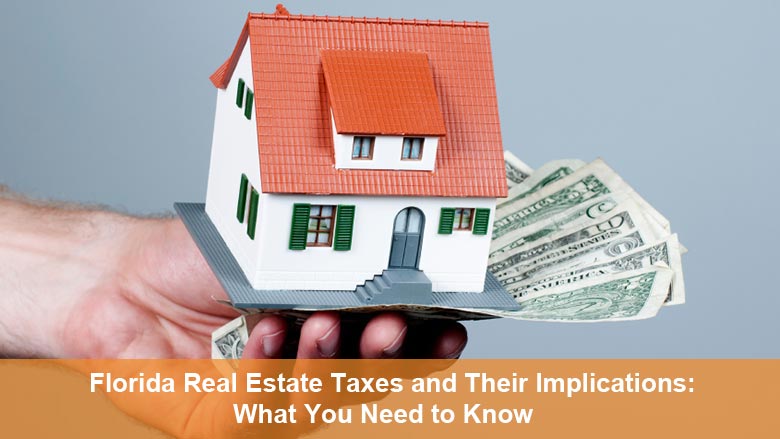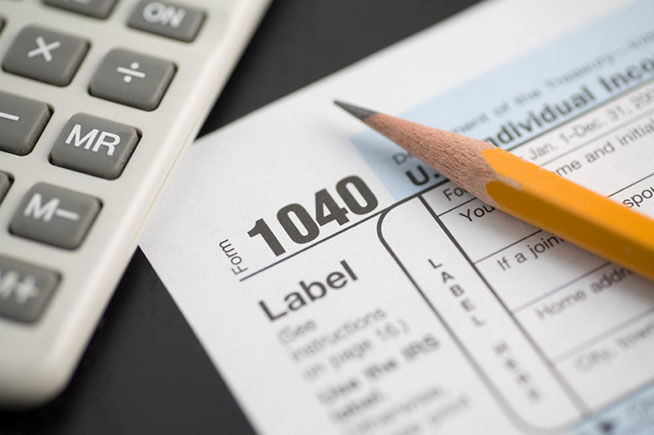
In many parts of the world, it is common to pay taxes in some form. In Florida, there is no state income tax as there is in other US states. But if you do make money from renting or when you sell your property there will be Federal taxes (to the US government) to pay on the profit. There is also the annual tax on the value of the property that you own.
Before we begin, we would like to strongly advise all non-resident buyers to invest a few hundred dollars to meet with a Florida Tax Accountant who has a breadth of experience working with international clients. It’s one of the most important things to understand when buying real estate in another country, as the tax costs could drastically affect your projected return on investment.
A professional accountant will be able to help you understand your own unique tax situation and make sure you are compliant with all aspects of tax law. In many cases, the tax to pay may be zero, but the costs of not filing or defaulting may be much higher.
Because an international buyer’s overall tax liability may be different than that of a US resident, depending upon the buyer’s home country’s tax treaty with the US We also think it is best to consult a tax advisor within your home country that is familiar with the tax treaty.
For instance, the capital gains rate for US residents is 15-20 percent (if the property was owned for more than one year). Foreign nationals, however, could be required to pay a higher rate, depending on their home country’s tax treaty with the US a tax accountant within your home country, who is familiar with your home country’s treaty, would be the best resource for answers to these questions.
Three Types of Taxes Relating to Florida Real Estate
- First, all properties in Florida are assessed a taxable value and owners pay an annual Florida property tax based on this value (except churches, schools, government entities). This tax is paid to the local municipality
- Second, if you sell your home, there may be a capital gains tax on the profit realized from the sale. For this scenario, there are federal guidelines set forth for global buyers under the Foreign Investment in Real Property Tax Act (FIRPTA).
Because FIRPTA is a rather complex Act, we discuss it at length in our article FIRPTA and the Case of the Foreign Seller. We strongly recommend global buyers reference this article. Furthermore, it is something you should definitely be aware of for your future tax planning purposes, especially since it is an important topic to discuss with your tax advisor in your initial meeting.
- The third tax category only applies to rental properties. If there is net profit on the rental income, there may be a federal tax on the profit generated from renting out a vacation home or other investment property. In addition, for short-term rentals, there is a sales tax which is generally charged to the renter and submitted to the local government.
In this section we will discuss Florida property tax, since it is applicable to all property owners on a recurring annual basis and capital gain tax, as it is applicable to all property owners when considering the sale of their property.
Florida Property Tax
In Florida, property taxes go towards public schools and infrastructure, including roads, libraries, and medical services. The local county property appraiser sets the assessed value (based on market data of the prior calendar year) to your property as of January first of each year.
In our experience, there seem to be some significant misunderstandings regarding Florida property taxes. The tax rates are determined by the local municipality and are the same for a property regardless of who owns the property.
There are a handful of opportunities to slightly reduce the property value but not the tax rate itself. For example, property owners who are widowers/widows or are disabled veterans may receive a credit against taxes owed. However, in order to be eligible, the property must be the primary residence of the primary owner — not a second home or rental property.
The Florida statutes direct how each county determines property values. That value is published/released around late summer each year. Each county has its own website defining the process for its residents, so you can look this up for your particular location.
You can visit the website of the Florida Department of Revenue for this information and more.
Florida Property taxes are not due until March first. However, you can begin to pay from the first of November of the tax year. For each month that you pay in advance (for a total of four months), you receive a one percent discount on your total tax bill (for a maximum total discount of four percent).
For example, if your property tax is $4000, by paying in November you save $160.
If you do decide to make Florida your primary residence, you will be entitled to a slight reduction (up to $50,000) in the assessed value of your property plus the assessed value cannot increase by more than 3% in any one year (Save Our Homes Act), thereby reducing your property tax, through something called the Homestead Exemption.

Capital Gains Tax
Like many countries, one of the ways the U.S. Government generates its income is by taxing the profits on the sale of real estate investments made within the country. This is a type of capital gains tax, which applies to citizens and non-citizens alike, who sell investment property (the sale of a primary residence is handled differently).
Capital gains tax is effectively tax you pay on the profit you’ve made on your property’s appreciation since you bought it. The capital gains tax is calculated on the profit made from the sale of real estate. The profit is revenue (sale price less purchase price) minus expenses. An accountant will guide you as to what qualifies as expenses.
💡 Pro Tip
We advise that you keep very accurate records of the costs associated with the purchase and sale of your property and everything in between. This may include things that are not as obvious such as travel expenses to visit your property.
The capital gains tax rate applied to your profit will depend on how you hold title and the amount of profit that you will generate. For more information on how you hold title and why it matters, see our article “Taxes And Titles: The Name on Your Property’s Title Matters.”
Tax Returns and Refunds: A Few Things To Consider
Regardless of whether you are a U.S. citizen or a foreign investor, the IRS requires you to file a tax return upon the sale of your property. If you are due a refund, be aware that the IRS begins processing tax returns and refunds at the beginning of the next calendar year.
1031 Exchange
A 1031 Exchange is a mechanism for real estate investors to delay (or defer) taxes on the gain they realized from the sale of their real estate investment. This mechanism is available to all owners/sellers of real estate in the U.S.
For all sellers that want to defer their capital gain, they are required to:
- Place the proceeds of the sale into an escrow account of a qualified intermediary
- Identify up to three properties targeted for investment within 45 calendar days of the sale of the prior investment
- The investor must close on the purchase of one of those three properties within 180 calendar days of the sale of the prior investment.
Generically, these are the basic steps for all investors. There is a fee for the 1031 Exchange and global investors will also have to comply with the FIRPTA requirements in addition to the general investor requirements. However, in our experience, 1031 exchanges are straightforward to facilitate.
When you are contemplating the sale of your investment property, work with your accountant and Realtor to figure out if in your situation it makes sense to do a 1031 exchange, or if it would be better to simply pay the taxes on the profit. Once you calculate each financial scenario and take into account your personal objectives, it usually will be pretty clear which is the better option for your personal situation.
Final Points on Capital Gains Tax Advantages for Residents
In the U.S., a married couple is able to earn $500,000 on the sale of their primary residence tax-free. If you are single this number is $250,000. One way to realize a non-taxable gain is by making your U.S. home your primary residence.
Obviously, if this is the case, you must have an applicable residency visa. If you are a resident in your house for 183 days per year, or two years out of a five-year period, and have owned the property for at least two years, then each resident owner is entitled to $250,000 in tax-free earnings.
As a working example: if you purchased a home for $500,000 as a couple, and two years later sell it for $1 million, then the $500,000 gain can be split between two resident spouses as income, and there will be no tax on that gain.
Knowing Your Residency Status for Tax Purposes: The 183 Day Rule
You can be taxed for U.S. income tax purposes either as a resident or as a non-resident. Residents are required to report their worldwide income to the U.S. taxing authorities. Non-residents are required to report only income arising from U.S. sources.
There are several ways you can be treated as a resident for U.S. income tax purposes. U.S. citizens are always U.S. income tax residents, regardless of where they live. Under most circumstances, an individual who obtains a Green Card (which allows the holder to reside permanently in the U.S.) will be taxed as a resident.
Even if you are not a U.S. citizen, you could be determined to be an income tax resident in the U.S. merely by the number of days in which you are physically present in the U.S. during the current calendar year, or a combination of days over the last three years. If you’re physically present in the U.S. for 183 days or more in a calendar year, you are treated as a U.S. income tax resident.
Although all of this information may seem intimidating at first, a good realtor with a well-established network should be able to put you in contact with the professionals you need to make sure that you understand the rules and can enjoy your new Florida home worry-free!


